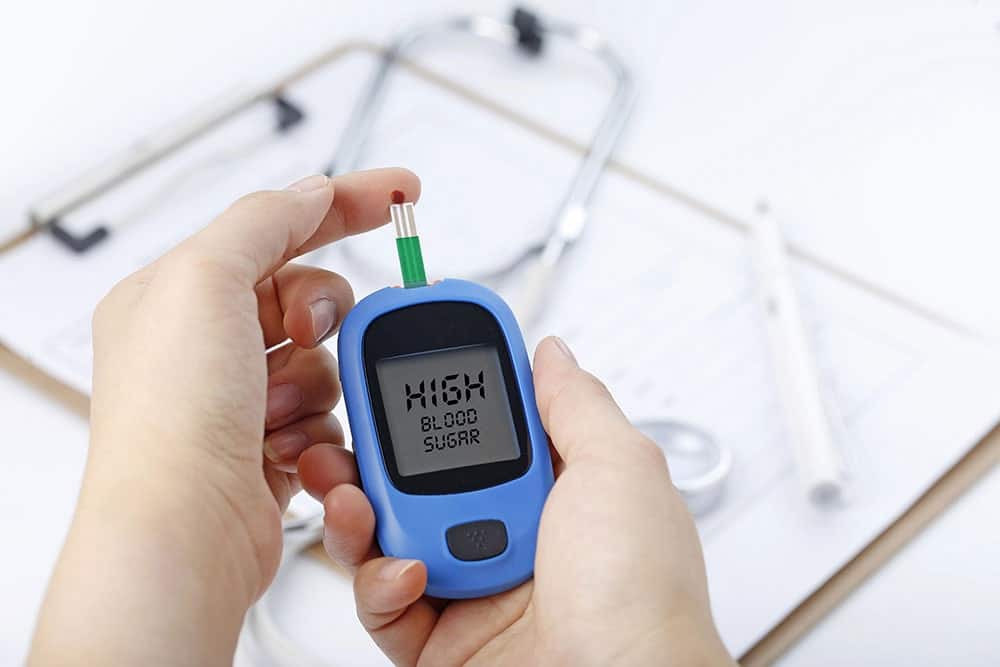Waking up dehydrated can be a serious problem if it happens every single morning.
For a lot of us waking up every morning might not be our favorite thing to do. It is particularly difficult if you are already sleep deprived because of your hectic work routine. Waking up thirsty and drenched in sweat can make your life miserable and affects your physical and mental health in the long run.
If you hadn’t known, dehydration during sleep is one of the most commonly faced problems around the world.
But why do I wake up dehydrated?
Let’s first understand why dehydration happens and then figure out how you can prevent yourself from getting dehydrated at night and in the morning.
9 Reasons Why You Are Waking Up Dehydrated
If you wake up dehydrated in the morning and this has been going on for a while, there could be several reasons for this. It is important to observe your daily habits, environmental conditions and any pre-existing health conditions to understand the root cause.
At night, your body naturally loses water through humidity in your breath. Natural respiration can account for almost one litre of water loss from your body. However, Neuropsychologists after a 2010 study stated that your body’s circadian rhythm strictly monitors the amount of water loss by releasing a water storing hormone called vasopressin.
Through Vasopressin, your body naturally keeps itself hydrated while you are sleeping..
Dehydration during sleep is a sign of something wrong in your lifestyle and a symptom of an underlying disease. Here are a few reasons why you might be waking up dehydrated every morning:
1. Night Sweats
If you are experiencing frequent night sweats, it will probably make you wake up dehydrated the next morning.
Waking up drenched in night sweats could point towards an underlying disease or illness. Night sweats are common in regions with extreme heat where the body has to sweat in order to lower its temperature. It can also be the result of an infection or having a fever.
2. Too Warm Bedroom
Sleeping in a warm bedroom or an overly dry environment is another major cause of waking up thirsty and dehydrated. While heat makes you tired and sleepy, warm temperatures will make you perspire more. Same goes for having too much humidity in the room.
Sleeping on warm and heavy bed sheets is another reason for hot flashes and night sweats, eventually leading to dehydration. Having improper air ventilation in the room makes dehydration even worse.
3. Alcohol Consumption

Consuming alcohol can not just cause nausea and headache in the morning but it can also lead to severe dehydration.
According to Healthline, Alcohol is diuretic which means it removes fluids from your body through the renal system. Alcohol reduces Vasopressin, a water retaining hormone, which eventually leads to more dehydration. If you are hungover, consuming alcohol just before going to bed, it will increase the urge to urinate which ends up making you feel thirsty at night.
4. Eating a Sodium-Heavy Diet
A common reason for dehydration is having a sodium-heavy meal before going to bed.
Studies suggest that men in America consume about 95% sodium based diet and women consume about 75% which is far more than the recommended intake.
Not taking enough water to balance with excessive sodium can make you feel really thirsty at night. Prefer eating something that has no salt just before going to bed to avoid waking up with a dry mouth feeling thirsty. Here are some foods and drinks that will help you sleep better at night.
5. Diabetes and High Blood Glucose Levels

Having high blood glucose levels and diabetes is closely linked to dehydration or experiencing dry-mouthedness after waking up.
High blood glucose for prolonged periods makes your kidney filter out the excessive glucose from blood through urine. During the process, your blood also loses the water content, therefore you tend to get more thirsty after waking up because your body cannot keep itself hydrated during the night to make up for the lost moisture.
6. Lower Estrogen Levels
A lot of women wake up feeling thirsty when on their period. This is because Estrogen plays an important role in maintaining moisture of your body.
Having a dip in the Estrogen levels means that your body is retaining less water. Both Estrogen and progesterone are key components in maintaining hydration levels. During menstruation and menopause, these levels are disturbed and can cause dehydration while you sleep at night.
7. Stress
This might come as a surprise but stress can be detrimental for your hydration. More stress hormones get pumped out of your adrenal glands when you are constantly under pressure.
This eventually exhausts the adrenal glands and leads to insufficiency.
The problem starts where Adrenal glands produce less aldosterone which is a key hormone in maintaining your fluid and electrolysis level. With lesser production of aldosterone, being stressed before sleeping dehydrates you further because your adrenal glands are not efficiently running.
8. Too Late Workout
While exercising before going to bed can destress you, it can wreak havoc in your internal clock and cause hydration issues, making you feel tired and dried up the next morning.
During a workout, you sweat which means you have lost water. If you have not hydrated yourself enough before going to bed, it will make you feel thirsty in the morning.
9. Side Effects of a Medicine
There are several medications that can cause dehydration at night.
Some medicines trigger a diuretic effect by increasing the urine output. Blood pressure is known to do this. Similarly medicines for nasal congestion can create dryness in the throat. Speak to your doctor if this condition is frequently occuring.
Dehydration and Sleep Deprivation

Hydration is one of the prerequisites for a restful sleep.
Chronic dehydration can lead to lack of vital amino acids responsible for the production of a natural hormone called melatonin. This hormone is produced by pineal glands and controls your circadian rhythm that regulates your sleeping and waking cycle.
Being dehydrated during the day will create a shortage of melatonin and sleep deprivation at night, leading to restless mind and body, and reduced productivity.
Other symptoms of dehydration such as dryness in the mouth and nasal passage can lead to snoring and sleep apnea.
Lack of hydration can also kick in the leg cramps also known as Charlie horses, which will keep you awake at night. Dehydration causes muscular aches and makes your sleep fragmented that can compromise your cognitive performance and overall mental health.
How to Prevent Dehydration During Sleep?
You can prevent dehydration by making few lifestyle changes. As dehydration leads to fragmented sleep and hinders your brain and vital organs from functioning normally, it is important to keep a check on how well you are taking care of the hydration levels. From downloading apps to monitor your day to day water intake to making a check-list to ensure you have fed your body enough fluids, there’s a lot that can be done. Here are some tips that will help you stay hydrated and prevent your body from dehydration at night:
1. Drink plenty of water when you wake up
Sleeping for six to eight hours without water makes the body crave for liquids.
The first thing to do after waking up is to gulp down at least a glass or two of water. It instantly rehydrates your body because while you sleep, your body loses plenty of fluids just by breathing and going to the loo.
2. Drink water before and after workout

Drinking water before and after workout can play an important part in making up for the lost hydration.
Studies find that you must drink about 17 to 20 ounces of water almost 2-3 hours before going for a workout. Then drink an 8 ounce of water 30 minutes prior to exercise and while working out, take 7 to 10 ounces of water every 10 to 20 minutes.
This process will help you regain the lost hydration due to exercise. Drink plenty of water after workout as well.
3. Eat healthy diet, vegetables and fruits
Avoid consuming processed or packaged foods as these can contain high sodium content.
The sodium based diet majorly includes canned beans, pizza, cold cuts and cured meats, burritos and tacos, soups, all savory snacks, chicken, cheese, eggs and rice among other things.
High sodium intake can make you severely dehydrated if you are not drinking enough water to counter it. Replace this diet with fresh fruits and vegetables that can fulfill your hydration needs. Vegetables such as cucumbers, tomatoes, spinach and fruits such as apples, oranges, watermelon can be very healthy sources of hydration as well as nutrients.
4. Maintain your hydration levels throughout the day
Skip drinking caffeinated drinks throughout the day and carry a water bottle instead.
Women need around 91 ounces of water in-take through food and drink, while men ideally require 125 ounces. To ensure that you fulfill this requirement, divide your water intake throughout the day.
Do not wait to hydrate yourself just before going to bed as it can lead to a sleep deprivation condition called nocturia, which is induced by frequent bathroom trips that interrupts your sleep.
5. Choose the right bedding so you sleep cool
Right bedding will prevent dehydration by keeping your body temperature comfortable and avoiding sweating. Buy breathable linen sheets that are cooler than cotton. Opt for bamboo or microfiber sheets and satin pillowcases to keep you cool at night.
There are microfiber-polyester sheets in the market that are excellent for heavy sweaters as these can absorb moisture.
If you sleep hot, the best solution for you is to invest in a cooling mattress pad that will help you regulate the temperature of your bed to your personal preference.
6. Stop consuming alcohol 3 hours before bedtime
Do not consume alcohol right before going to bed as it will make you pee more often and disrupt your sleep.
Consuming alcohol also leads to headaches, night sweats and severe dehydration during the night. It is recommended to stop drinking alcohol at least 3 hours before going to bed so that you can hydrate yourself enough and urinate a few times before going to bed.
Frequently Asked Questions
Is waking up dehydrated normal?
Waking up dehydrated may be normal if these episodes are not very frequent.
Generally speaking, dehydration can happen due to your disturbed routine, lack of water intake or simply warm temperature since the body doesn’t get any fluid 7-8 hours which makes it crave for fluids. If you wake up dehydrated every morning, it may be due to an underlying medical condition that needs attention.
Can you be dehydrated even if you drink a lot of water?
Being dehydrated even after drinking a lot of water might be due to an electrolyte problem caused by flushing out potassium, magnesium, sodium, chloride. If you drink enough water but not much fruit and vegetables to get these vital elements, it may lead to a thirst response from your body because your cells are not absorbing enough water due to lack of electrolytes.
Other reasons for dehydration may include excessive sweating, being hungry and taking medication that is diuretic.
Can you die of dehydration in your sleep?
Dying of dehydration alone is a rare occurrence. However, lack of fluids for days can create deadly problems in your vital organs that can lead to death in your sleep.
Being severely dehydrated can make multiple organs fail due to hypovolemic shock. It can induce heart ailments, increasing a chance of heart stroke during sleep.
What does severe dehydration feel like?
Severe dehydration has different symptoms which includes not peeing or having very dark yellow pee, having a very dry and dull skin, feeling dizzy, fainting, rapid breathing and heartbeat, muscle aches, low energy and lack of cognitive flexibility, having sunken eyes and feeling sleepy all the time.
